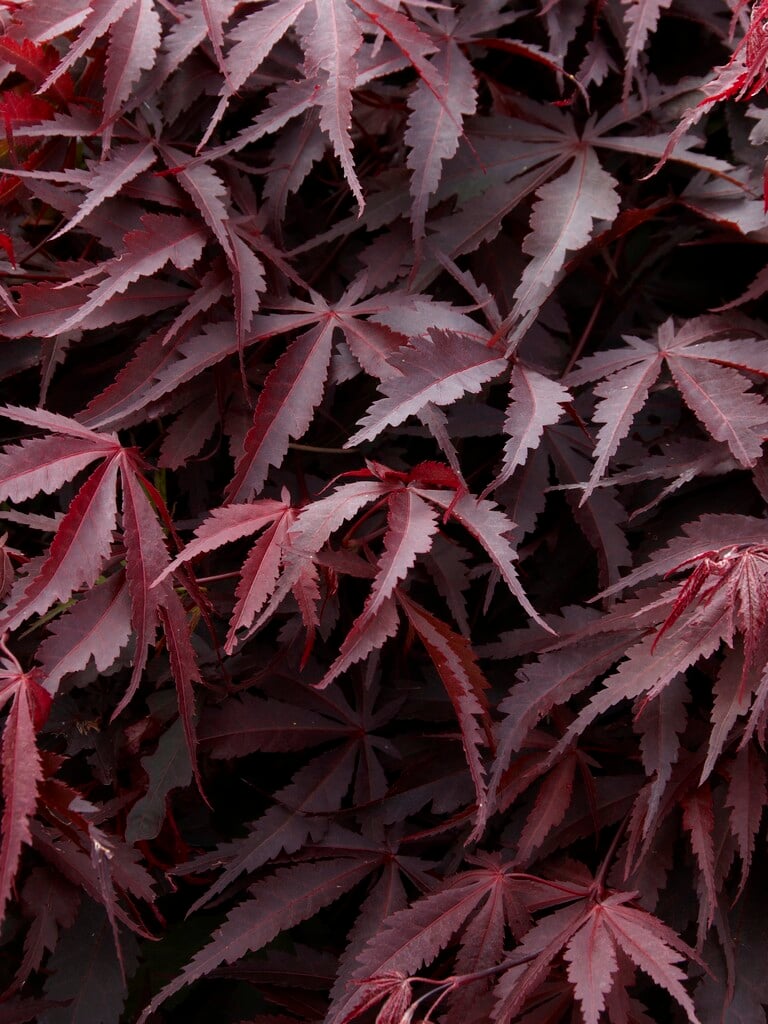Acer palmatum 'Inazuma' (M)
Japanese maple 'Inazuma'
A deciduous tree, up to around 10m high, with palmate leaves divided into long, tapering lobes. Leaves emerge bright reddish purple in spring, and develop to dark purple and olive green, before turning deep crimson in autumn. Winged seeds are also tinted red in autumn
Size
Ultimate height
8–12 metresTime to ultimate height
20–50 yearsUltimate spread
4–8 metresGrowing conditions
Moisture
Moist but well–drainedpH
Acid, NeutralColour & scent
| Stem | Flower | Foliage | Fruit | |
| Spring | Red Purple | |||
|---|---|---|---|---|
| Summer | Green Purple | |||
| Autumn | Purple Red | Green Red | ||
| Winter |
Position
- Full sun
- Partial shade
Aspect
East–facing or South–facing or West–facing
Exposure
Sheltered Hardiness
H6Botanical details
- Family
- Sapindaceae
- Native to GB / Ireland
- No
- Foliage
- Deciduous
- Habit
- Columnar upright
- Genus
Acer can be deciduous trees or large shrubs with paired, often palmately-lobed leaves and small flowers followed by characteristic winged fruits. Many have fine autumn colour, and some have ornamental stems
- Name status
Accepted
How to grow
Cultivation
Grow in moisture-retentive, well-drained, ideally slightly acidic soil, in a sheltered position with protection from drying winds. Thrives in part shade, though some sun is needed to develop the leaf colour; will tolerate full sun if soil is reliably moist. Mulch in spring to improve moisture retention. See Japanese maples cultivation
Propagation
Suggested planting locations and garden types
- Architectural
- Low Maintenance
Pruning
Minimal pruning required; see pruning group 1. Prune from late autumn to mid-winter only
Pests
May be susceptible to Acer gall mite, aphids, caterpillars and horse chestnut scale
Diseases
May be susceptible to Verticillium wilt, Acer leaf scorch and honey fungus
Love gardening
Sign up to receive regular gardening tips, inspiration, offers and more
View our Privacy Policy
Get involved
The Royal Horticultural Society is the UK’s leading gardening charity. We aim to enrich everyone’s life through plants, and make the UK a greener and more beautiful place.

